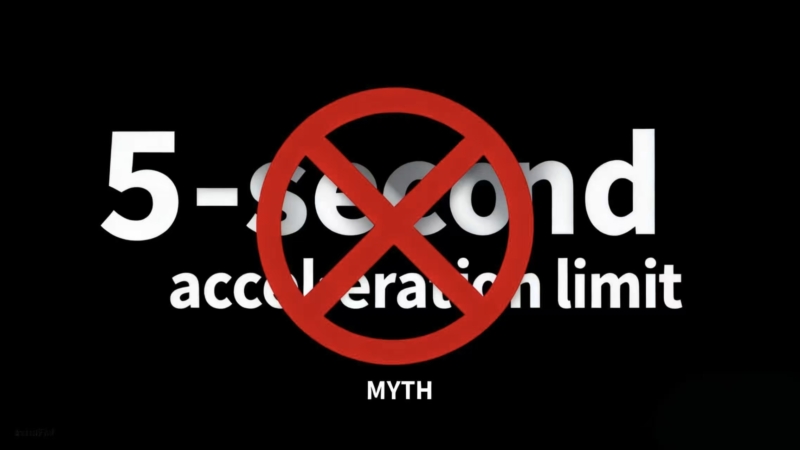China’s Ministry of Public Security has responded to widespread online debate after a clause in a draft national vehicle safety standard was interpreted by some readers as prohibiting fast acceleration in new-energy vehicles. The ministry clarified that the draft does not restrict sub-five-second 0–100 km/h acceleration capabilities and that the discussion arose from a misunderstanding of the draft’s wording, as reported by IT-Home.
On November 10, the ministry released a consultation draft of the updated national standard “Technical Conditions for Motor Vehicle Operation Safety,” prepared under the National Standardisation Administration’s revision plan. One clause states that, after each power-on or ignition event, excluding automatic start-stop systems, passenger vehicles must default to a working mode in which acceleration from 0 to 100 km/h is at least five seconds. The wording quickly attracted attention, with the topic “EV acceleration performance banned” spreading across social platforms.
Officials told Caijing that the public misread the clause. The key term is “default start-up”, which refers to the vehicle’s initial operating mode immediately after power-on or ignition. In this mode, acceleration from 0–100 km/h must take no less than five seconds. The draft does not prevent cars from achieving faster times once additional driver inputs or performance settings are engaged. Sub-5-second acceleration remains possible, as the regulation applies only to how torque is delivered at start-up, not the vehicle’s peak performance.
The drafting official explained that the adjustment reflects recent trends in the domestic market. New-energy vehicle sales have proliferated, and many models deliver strong initial torque, which can increase the difficulty for some drivers when controlling the vehicle from a standstill. The official noted that incidents involving loss of control during start-up operations have risen, most commonly among EVs. High-performance internal-combustion vehicles present similar risks, but their market share remains smaller.
Popular Chinese EVs demonstrate that sub‑five‑second acceleration remains achievable. Xiaomi’s SU7 Max reaches 0–100 km/h in 2.78 seconds, BYD’s Han L EV does 2.7 seconds, and Geely’s Galaxy E8 records 3.49 seconds.
The consultation draft also contains several additional safety provisions for new-energy vehicles. These include requirements for A-type regenerative braking systems to standardise one-pedal driving behaviour, limits on deceleration after the accelerator is released, and mandatory pedal-misapplication suppression systems that monitor for mistaken inputs when the vehicle is stationary or creeping and restrict power output while issuing a clear audio or visual alert.
In-car entertainment displays must turn off video playback and gaming when the vehicle exceeds 10 km/h. The draft further specifies that power batteries in pure electric and plug-in hybrid cars must comply with national standard GB 38031 and include directional pressure-relief and pressure-balancing structures.
The draft remains in the public consultation stage as part of China’s national standards revision process.
Follow us for ev updates








